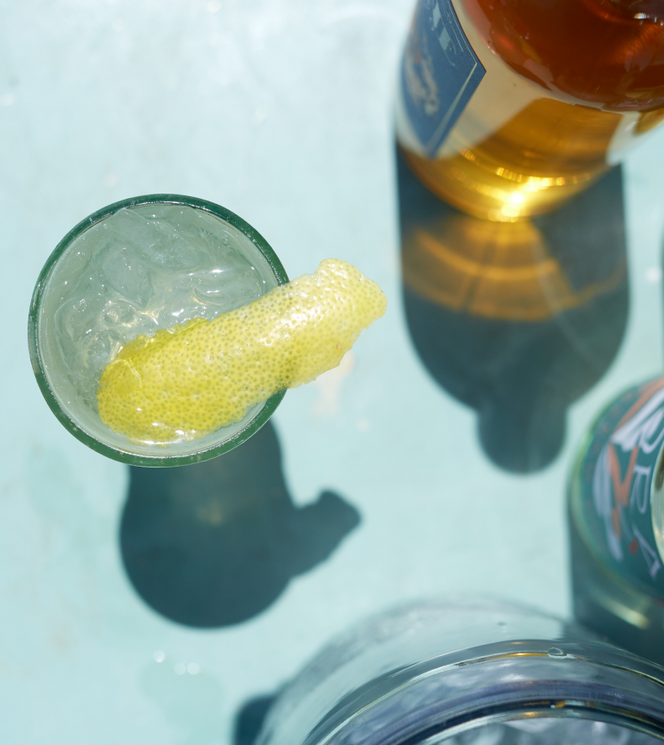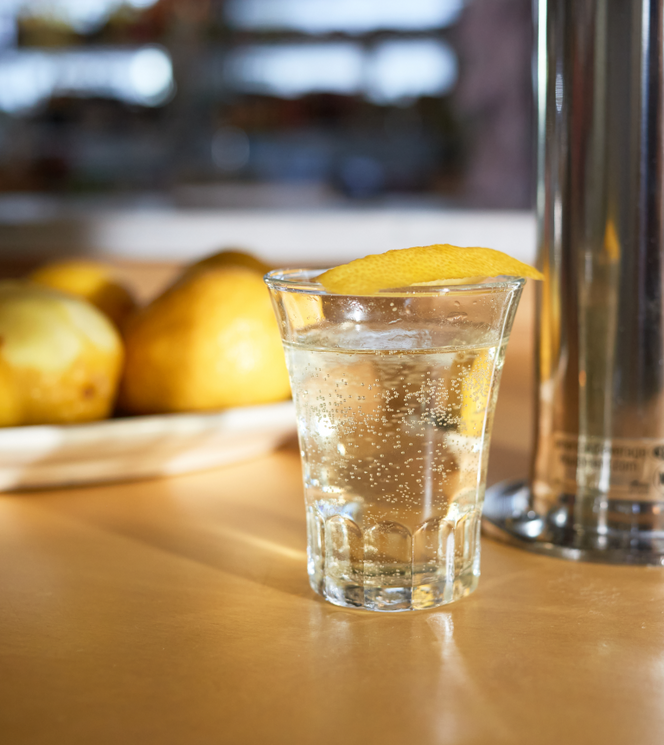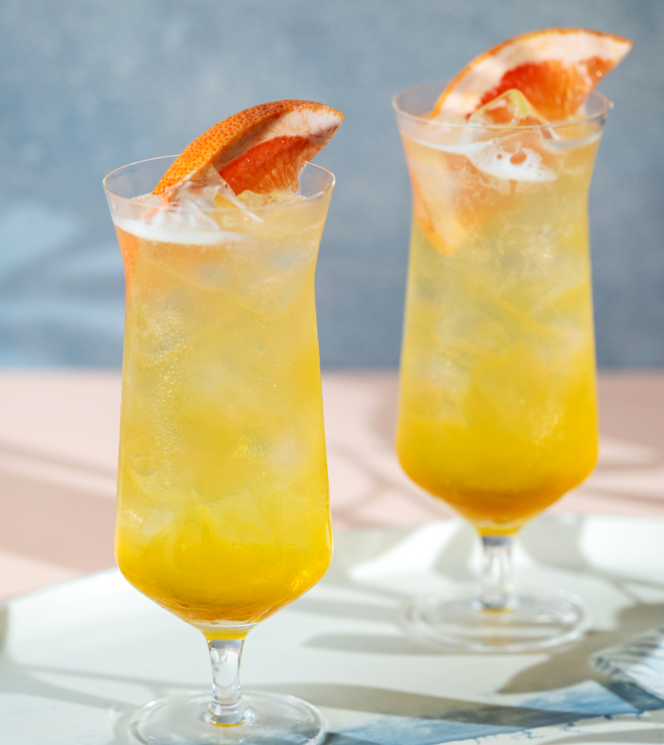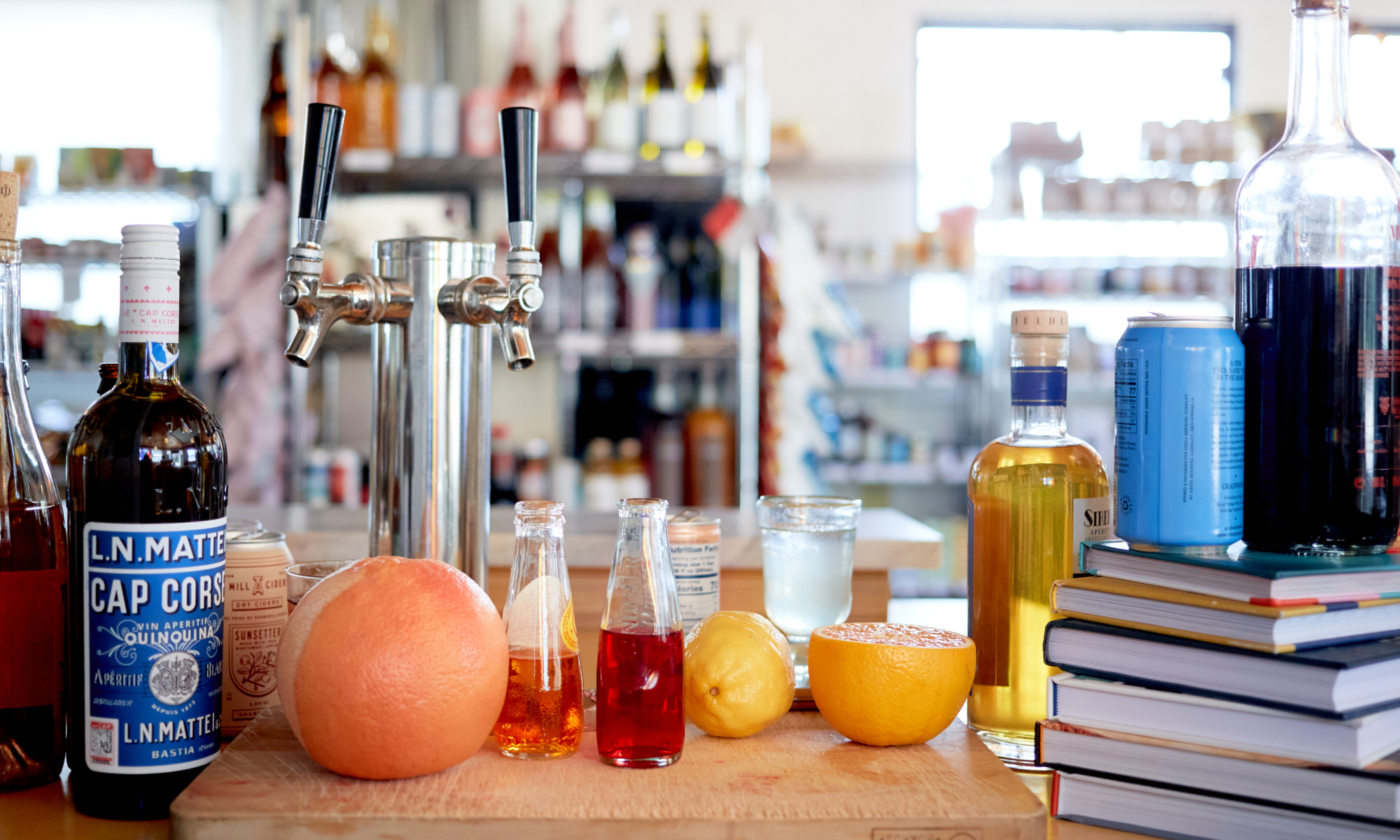
Vermouth has a long and complicated history dating back to ancient Greece, but these days is most closely associated with Italy (vermouth as we know it today originates in Turin) and northern Spain (where happy hour is literally called “hora de vermute”). More than just something you put into either a martini or Manhattan (we’d venture this is how most Americans encounter vermouth), vermouth is a complex beverage that deserves its moment in the sun. Luckily, the Pacific Northwest has a history of embracing pioneering ideas, and a few local winemakers are trying their hands at making distinctly Cascadian vermouths.

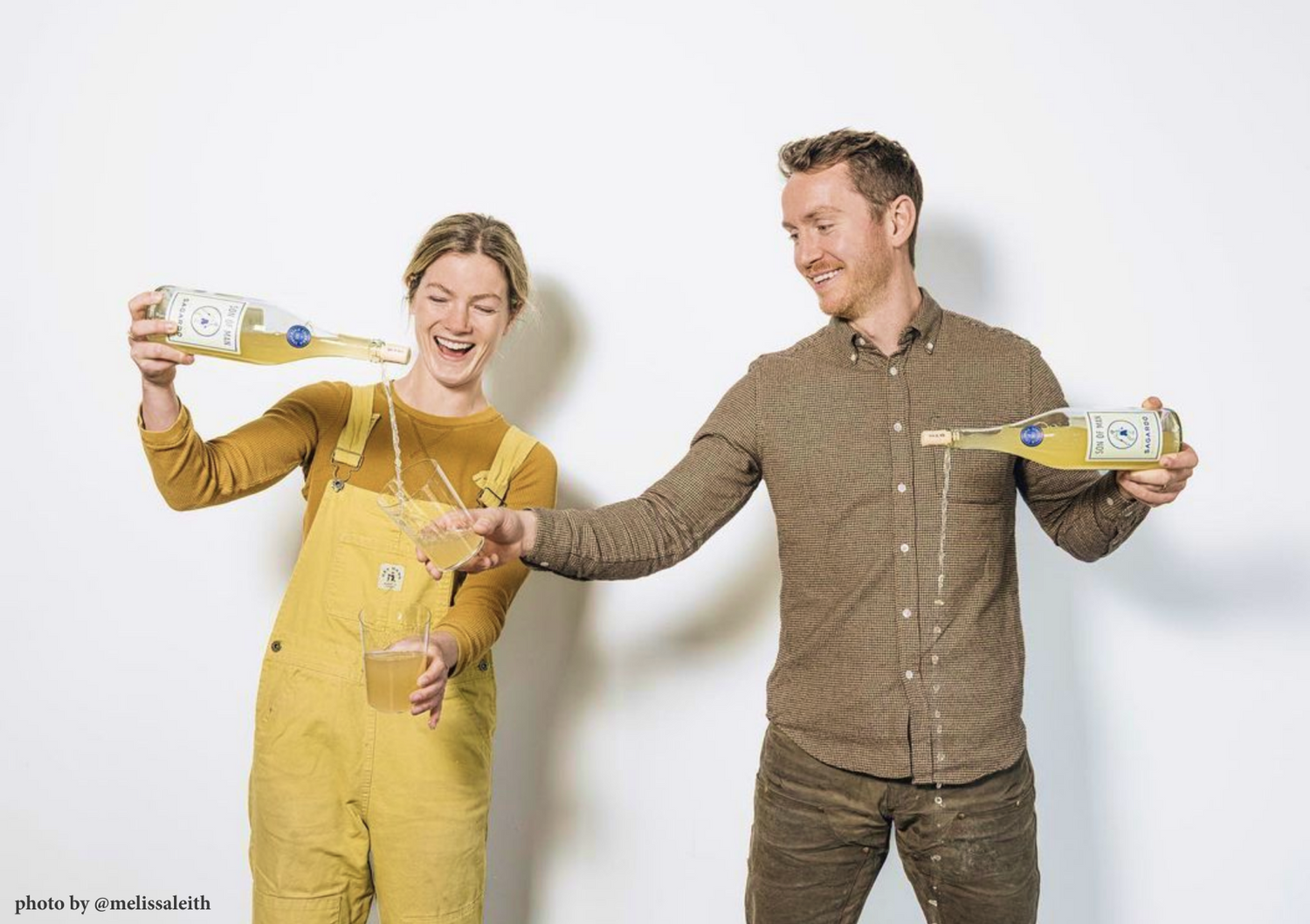
Son of Man
Jasper Smith’s Son of Man cidery operates out of an anonymous-looking warehouse nestled on the banks of the Columbia River in the shadow of the Cascade Mountains, one of the most picturesque landscapes in the region. Deeply inspired by the rustic ciders found throughout Spanish Basque country, Son of Man has in the last few years started making cider-based vermouth.
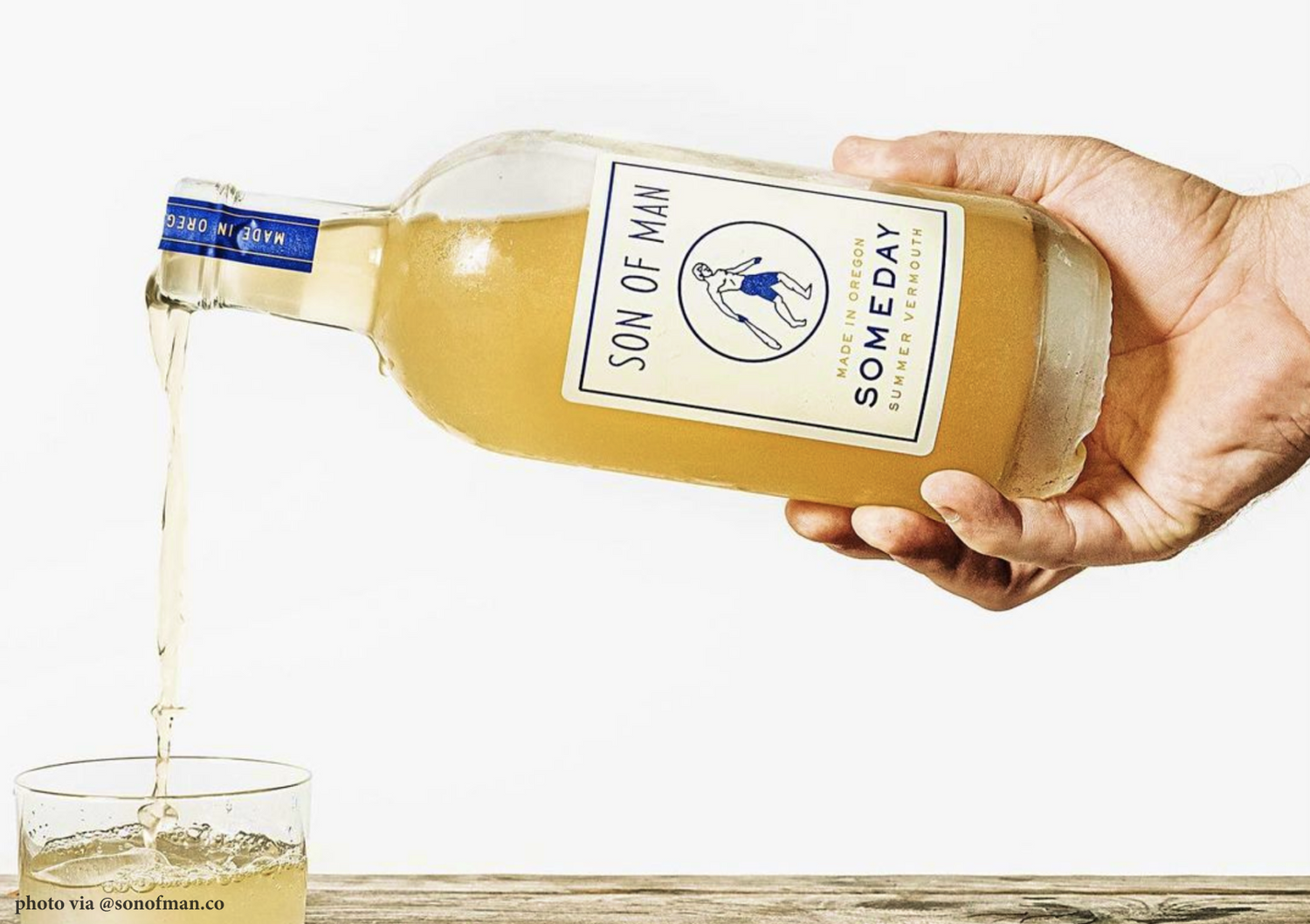
At the end of bottling season in the spring, Jasper distills any leftover vermouth into brandy, then recombines it with cider and adds an ever changing assortment of botanicals and citrus to create something wholly unique.

Color Collector
Bethany Kimmel makes her micro production vermouth under the name Color Collector in an old barn on her 20 acre property in White Salmon, Washington in the Columbia River Gorge. Sweetened with local honey, her vermouth is infused with botanicals she gathers herself–some cultivated in her garden, some growing wild in the fields around her home–and is considerably lighter than typical Italian red vermouths, offering a pretty, nuanced, vinous character and restrained bitterness.
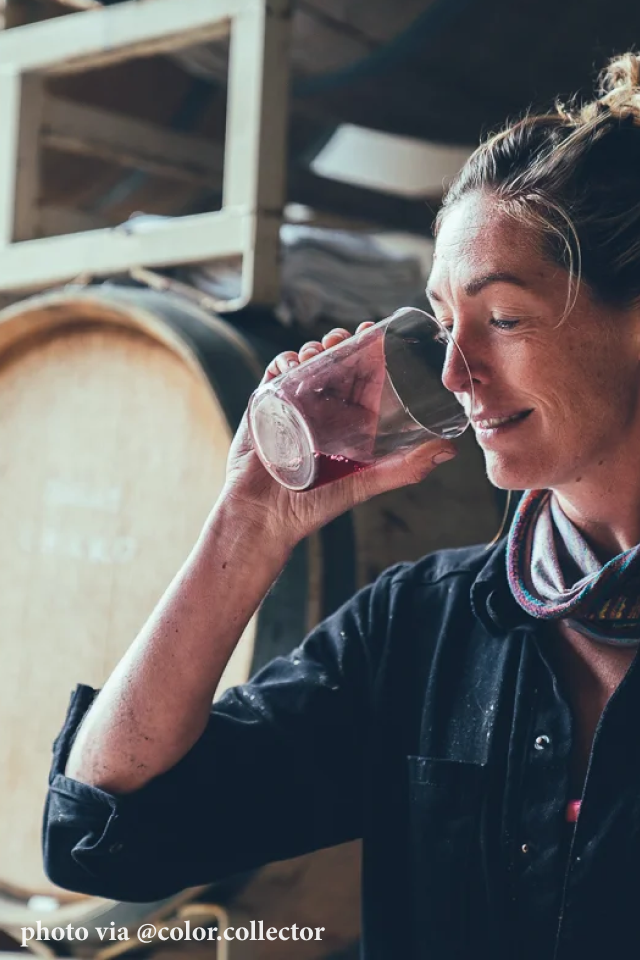
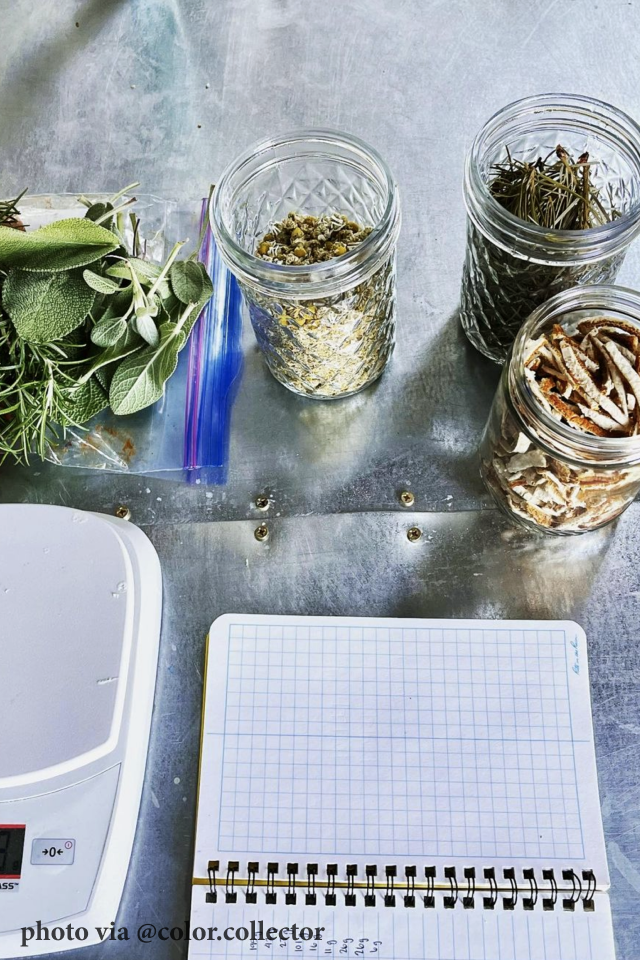
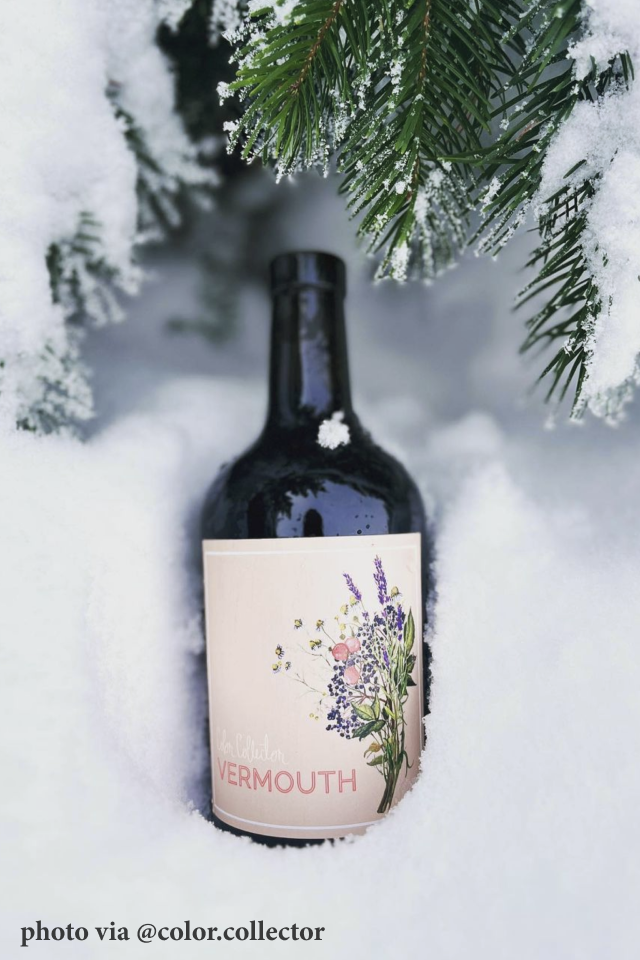

Accompani
The brainchild of two enthusiastic home bartenders, Portland’s Straightaway Cocktails initially launched with a line of ready-to-drink canned cocktails, including PNW-inspired riffs on classics like the Negroni and Margarita. Early success led to customers asking for more concentrated liqueurs to use to mix their own drinks, so last year Straightaway introduced their Accompani line of vermouths and amari. Their signature sweet vermouth–exquisitely balanced & full-bodied–pays homage to the traditional flavors of Italy with a heady aroma of herbs, fruit, citrus and spice, many of which are locally sourced.
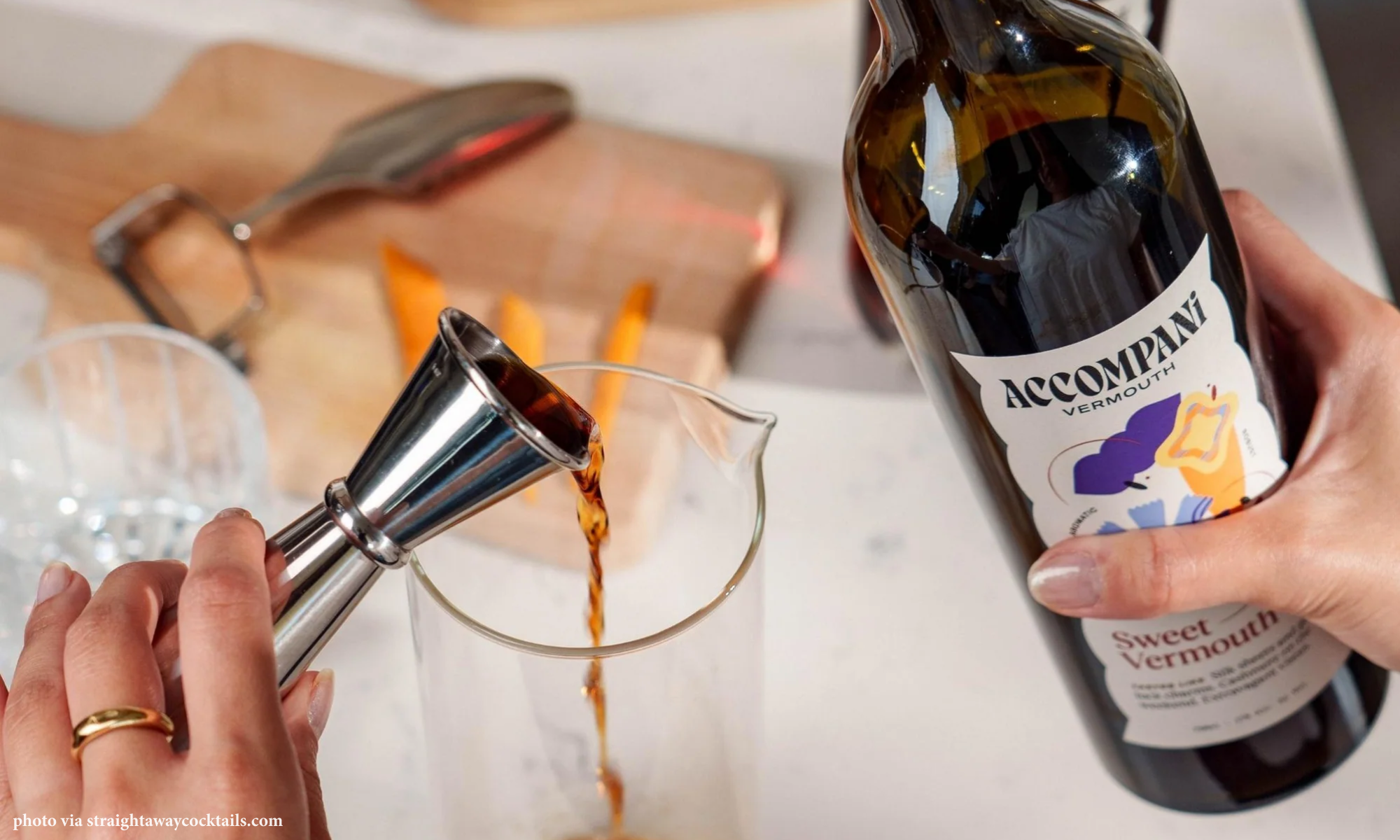

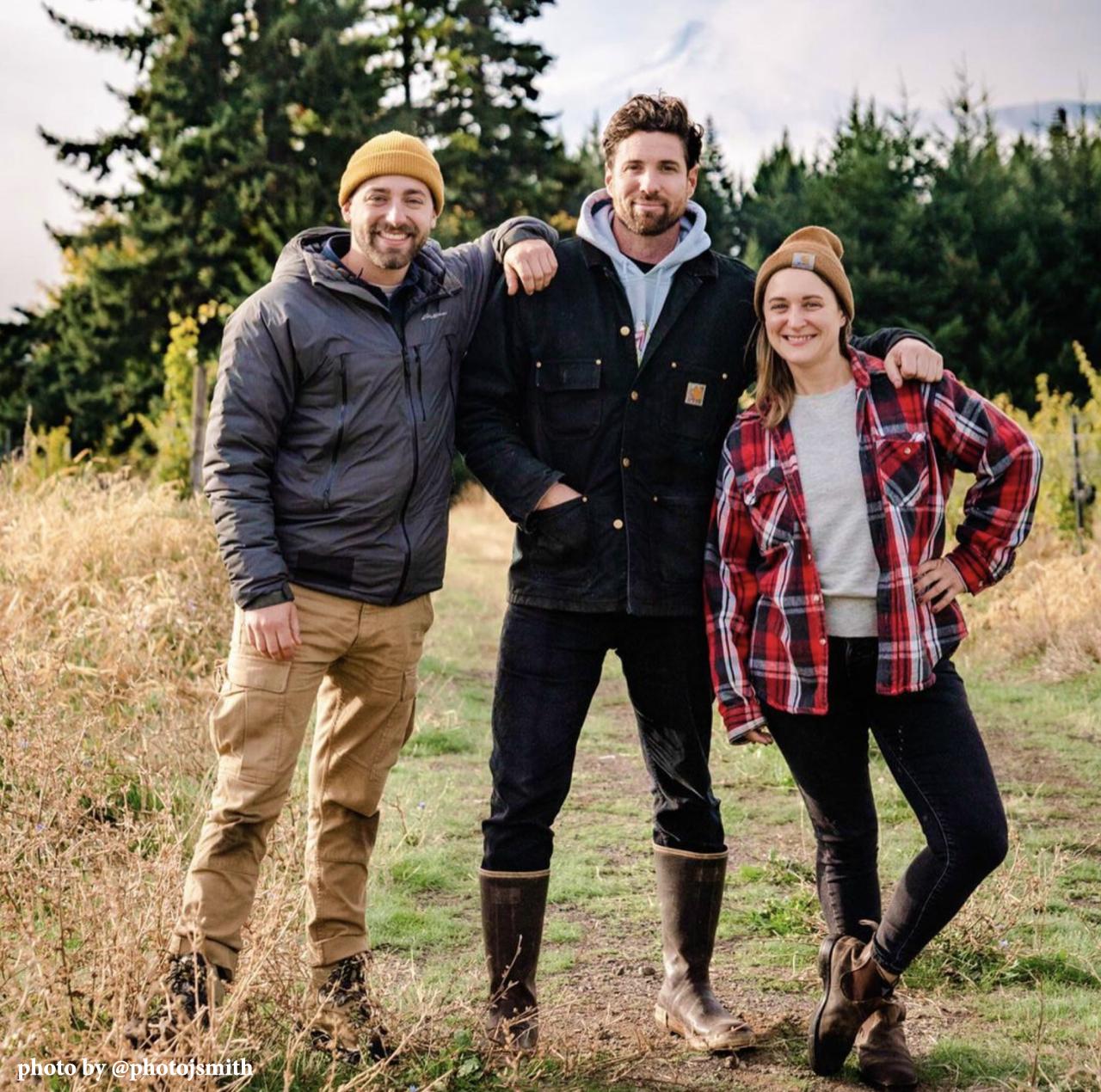
Buona Notte
Portland-based winemaker Graham Markel works out of the same facility as Son of Man, where he crafts new-world homages to the storied wines of Italy. His label Buona Notte has grown steadily over the last few years, but it’s Graham’s recent experiments in vermouth that have really caught our attention.on availability, style, or even provide a review.
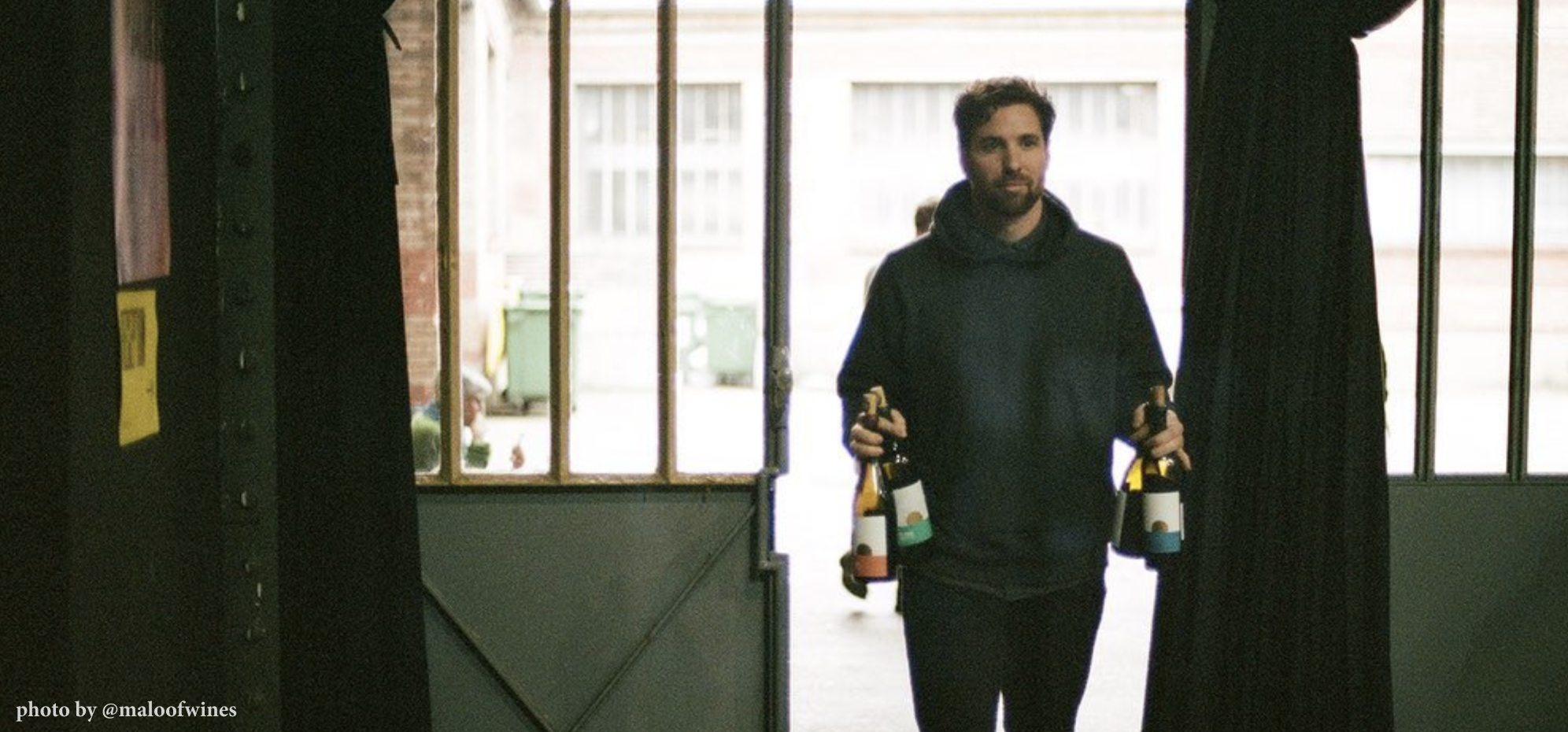
Made in extremely limited quantities, they are uncommonly light, showing a restrained hand more interested in offering a nuanced, layered profile than hitting you over the head with bitterness. His delicate, herbaceous aperitifs are perfectly suited to sipping on their own, but also integrate extremely well into cocktails.

Grape Ape
Morgan Schick spent years working in high-end cocktail bars in San Francisco (shout out to Trick Dog!!) before moving to Portland and opening Grape Ape, our city’s most recent entrant to the natural wine bar scene. Morgan’s approach to vermouth is rooted in his years of experience mixing drinks, and he takes considerable license with the standard formula. Combining strawberries and rosé into a base of aromatic pisco, Morgan’s unconventional take is just the thing we love to see, and offers a glimpse into the vast possibilities of what vermouth can be in the hands of those willing to challenge the status quo.
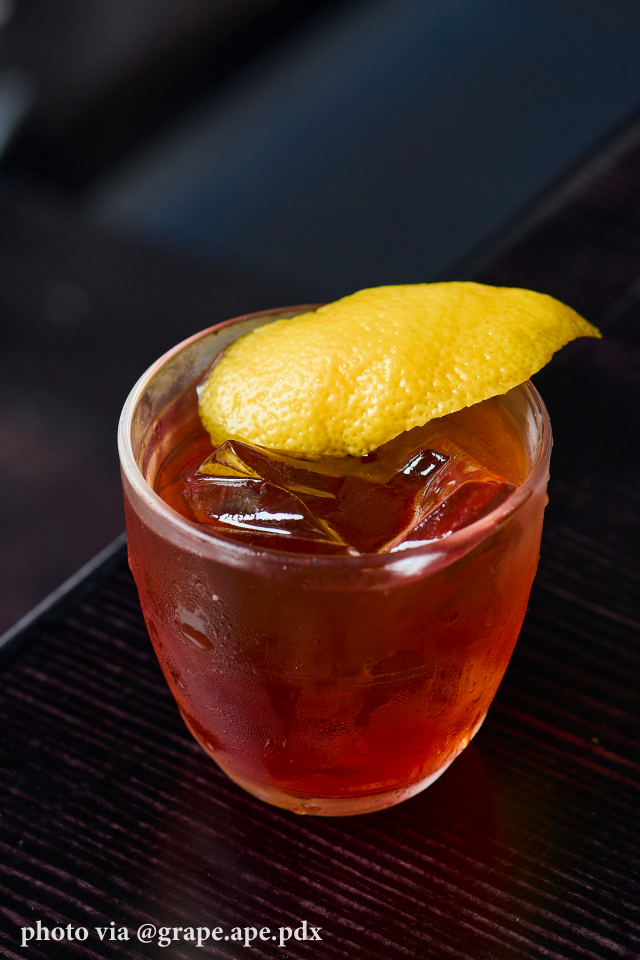
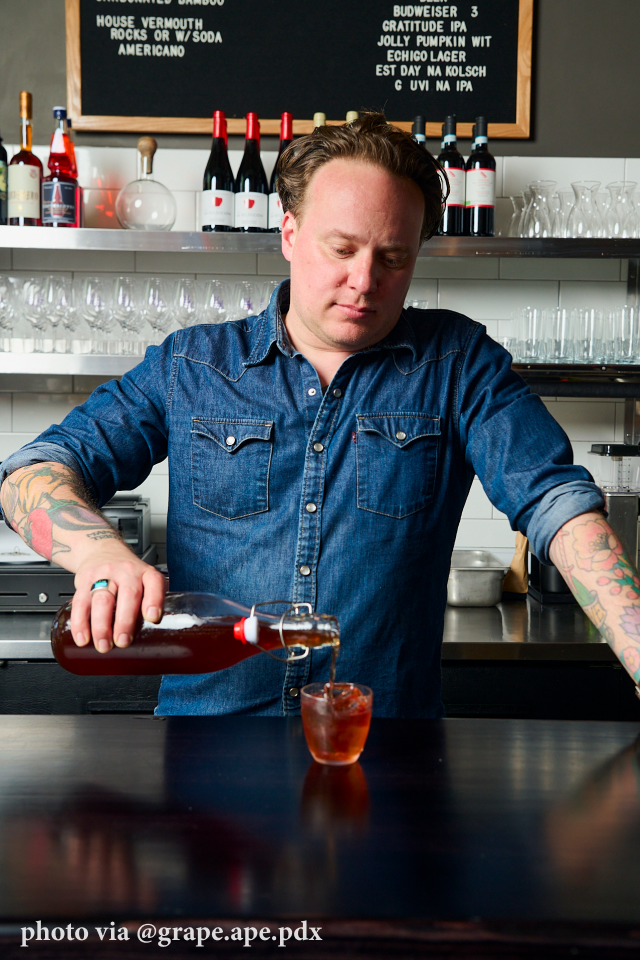
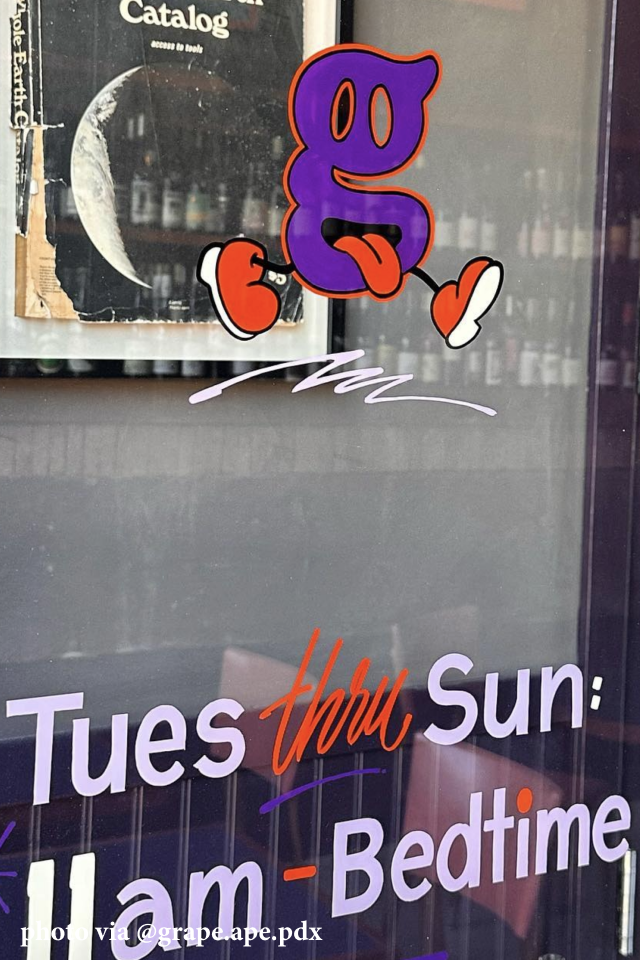

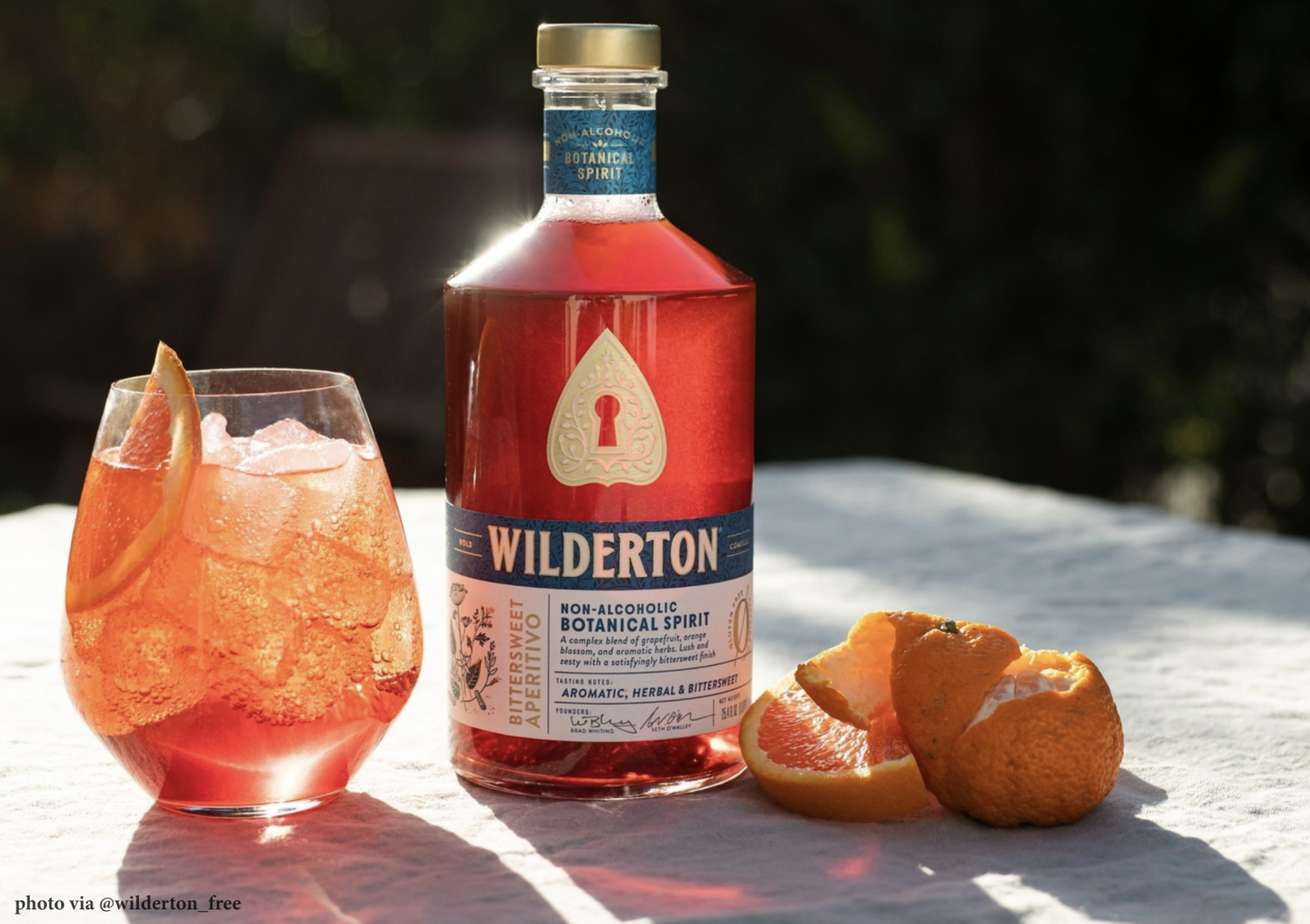
Wilderton
Founder Brad Whiting spent most of his career overseeing operations for the PNW's largest distillery before teaming up with Seth O'Malley to create Wilderton, Portland's first entry in the crowded non-alcoholic distilled spirits category. Their products, featuring creative combinations of aromatic botanicals, citrus, spices, and even teas, are like nothing else on the market.
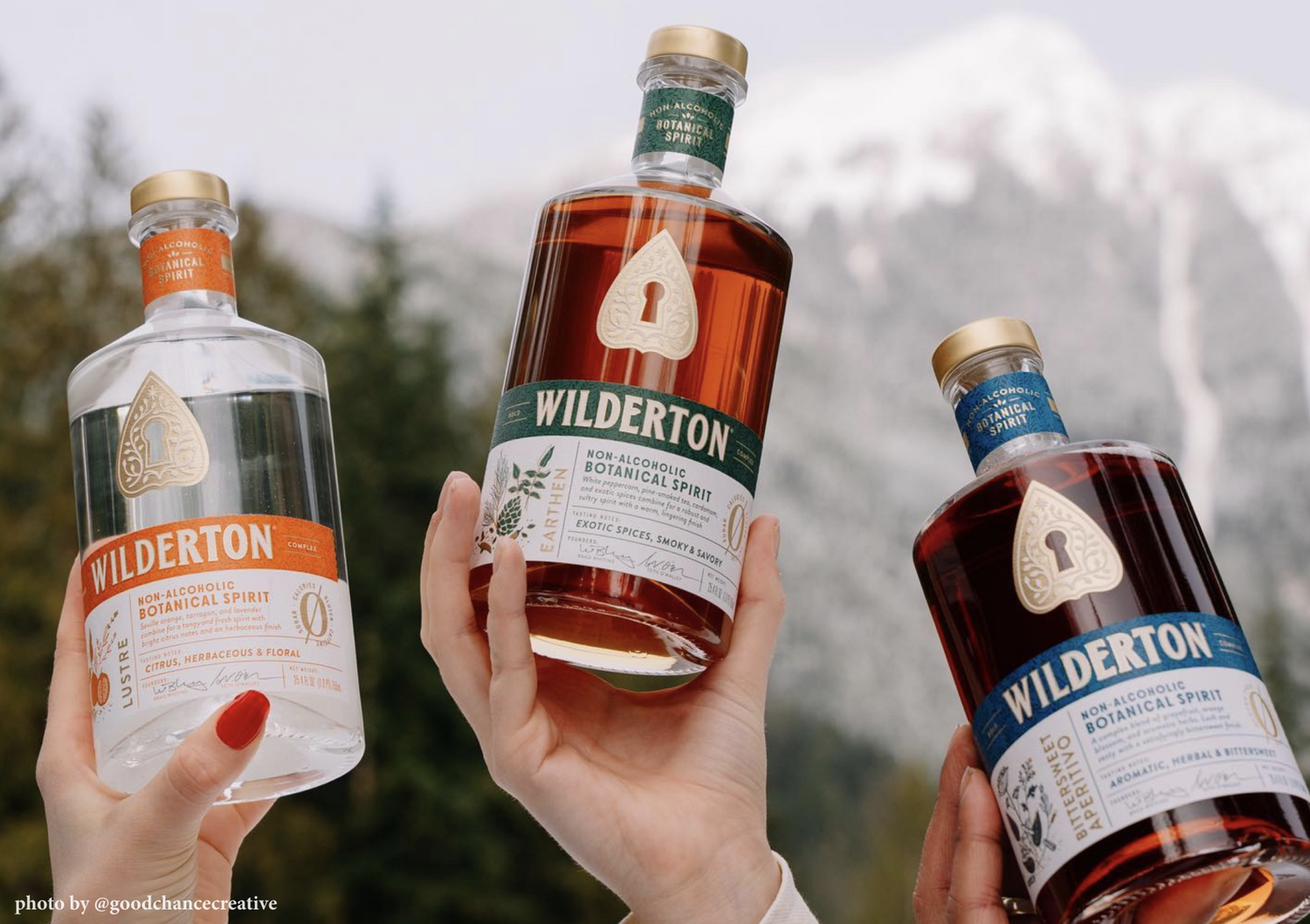
Their most recent release, simply called Bittersweet Botanical, finally delivers a serious (and seriously delicious) non-alcoholic alternative to the classic red bitters of Italy.

If we can draw any conclusions from the fact that so many local winemakers are turning their attention to vermouth, it’s that the future of this ancient beverage is looking very bright. After all, vermouth offers the perfect foundation for exploring the complex flavors found all over the Northwest; we couldn’t be more excited to taste what comes next.
Photo credit goes to @sonofman.co, @melissaleith, @color.collector, straightawaycocktails.com, @photojsmith, @maloofwines, @grape.ape.pdx, @wilderton_free, @goodchancecreative

